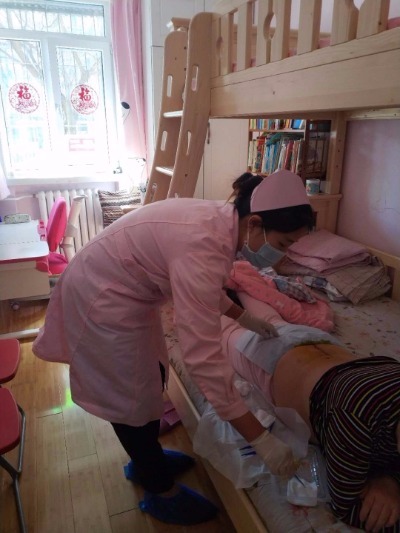An issue that is being handled with great care


Home nursing models put to the test in three municipalities and three provinces
Internet-based nurse-booking can play an important role in handling the country's care for disabled seniors and rehabilitation medical care, a medical expert says.
"I'm very optimistic about the future of this mode," says Lu Qingjun of the China-Japan Friendship Hospital in Beijing, who is also director of the National Telemedicine and Connected Health Center.
By the end of 2017, 240 million of China's people were aged 60 or above, accounting for 17.3 percent of its population, the National Bureau of Statistics says.
At the same time 150 million senior citizens, or 65 percent of the total number, suffered from chronic diseases, and about 40 million senior citizens were disabled or semi-disabled. The increase of incapacitated, senior citizens and empty-nesters has led to a surge in the demand for home care services.
In recent years the central government has published a series of documents such as the outline of the Healthy China 2030 plan, on promoting the development of health services and old-age care services.
There has been widespread debate about the pricing and safety of online home care services. In February, to regulate the industry and ensure that it grows in a healthy way, the National Health Commission issued a notice relating to internet plus nursing services.
It named three municipalities and three provinces as test beds for an experiment in online nursing, and suggested other provinces could nominate cities as test beds if they felt cities were suitable. The pilot period lasts from February till the end of the year.
The notice set out principle requirements concerning the service providers, management, third-party platforms, responsibilities, risk prevention and control, and other supportive mechanisms.
Lu says the government document can help reduce mistakes among all the parties involved, including hospitals and private companies, something that he says was a problem when the country's internet Plus medicine campaign began unfolding several years ago.
"The document was not written hastily. We worked on it very carefully based on research. In the present phase we want to encourage experimentation and draw on the experience so the mode develops better."
The growth of home nursing based on the internet is in line with the future needs of home-or community-based care for the aged and directly benefits the old-age care industry, he says.
Home-visit nursing has a long history in the West, and China can learn from foreign experience in many ways, he says.
"But now we're letting the internet play a key role, and this new mode requires a lot of experimentation by us."
A key factor in future growth is improving and ensuring safety in the whole process, he says.
"Safety is always a big concern."
Pricing, including how to incorporate the cost of home nursing into the public healthcare insurance system, is another challenge that needs to be tackled, he says.




































